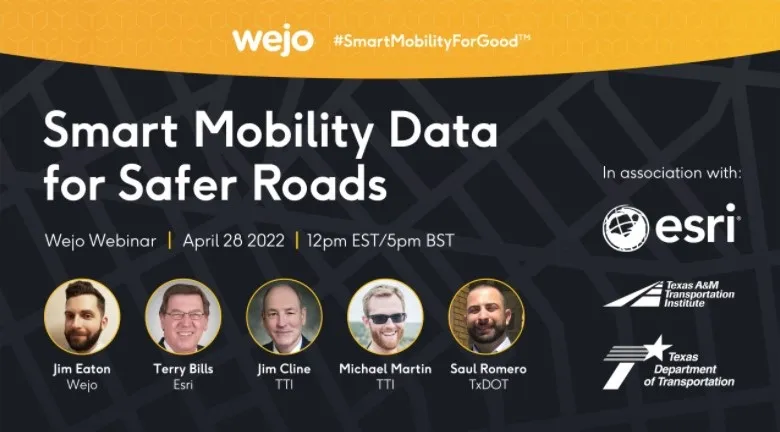
The use of smart mobility data in improving road safety is the subject of a new webinar from Wejo.
Click here to register.
The free event takes place on 28 April at midday EST / 5pm BST with Texas Department of Transportation (TxDoT), Texas A&M Transportation Institute and Esri.
It will show how data enables transportation departments to improve roadway safety and access, and how to efficiently implement data-driven road safety initiatives to curb crashes.
Last year, TxDoT enlisted Texas A&M Transportation Institute to help solve the problem of heightened public safety risks on roads within the Permian Basin.
Speakers from all four organisations will explain how they worked together to examine trends on how the region’s roads and driveways located near oil/gas leases were being used and to recommend improvements.
To find a solution, Texas A&M Transportation Institute uses innovative technologies, such as Wejo's smart mobility insights via the Esri ArcGIS Online platform in its research.
With Wejo's data, Texas A&M Transportation Institute is able to provide data-driven recommendations to TxDoT, including where to install new driveways or retrofit existing ones along the corridors in the Permian Basin region to improve accessibility, mobility and public safety.
Content produced in association with Wejo








